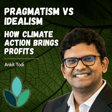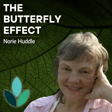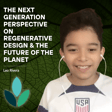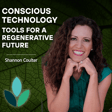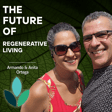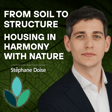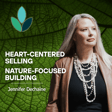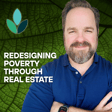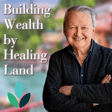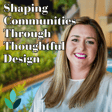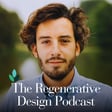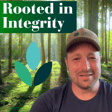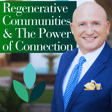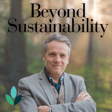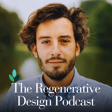
EP34: Peter Michel - Follow the Signs: How to Build a 1000 Year Legacy
“It’s very important that you be not only the change that you want to see in the world, but also finance that change that you want to see in the world.”
Regenerative design requires more than short-term fixes—it calls for long visions that outlast any single generation. At the core of this episode is the principle that farming is not ownership but stewardship, where land, biodiversity, and community are passed forward in healthier, richer conditions.
Peter Michel Heilmann shares his global journey through Africa, Europe, and beyond, where he witnessed both the harsh realities of inequality and the resilience of communities close to nature. He shares insights into creating a 1000 year vision for farms and land stewards to develop financing models like Earth Certificates showing how regenerative farming can move beyond debt and bureaucracy.
Peter Michel Heilmann is one of the pioneers in sustainability, founder of WholistiQ, a former Managing Partner of Nordic Circular Hotspot, and co-founder of Global Compact Networks in Finland and Greece. He has authored seven books and today dedicates his work to helping farmers and land stewards craft thriving, future-proof farms, estates and communities.
https://www.linkedin.com/in/pmheilmann/
Follow Peter Michel's regenerative journey:
Explore these valuable resources to further your journey in regenerative design:
Discover more about Regenerative design at Paulownia Landscape Architects.
https://www.paulownia-la.com/.
Dive into the Twelve Laws of Nature and unlock the secrets of harmonizing with our planet at https://www.12lawsofnature.com/.
Fulfill your garden aspirations with expert guidance from the Garden of Your Dreams masterclass at https://www.gardenofyourdreams.com/.
Ready to take actionable steps towards your dream garden? Book a complimentary 30-minute training session with Matthieu for immediate results: https://calendly.com/garden-of-your-dreams.
